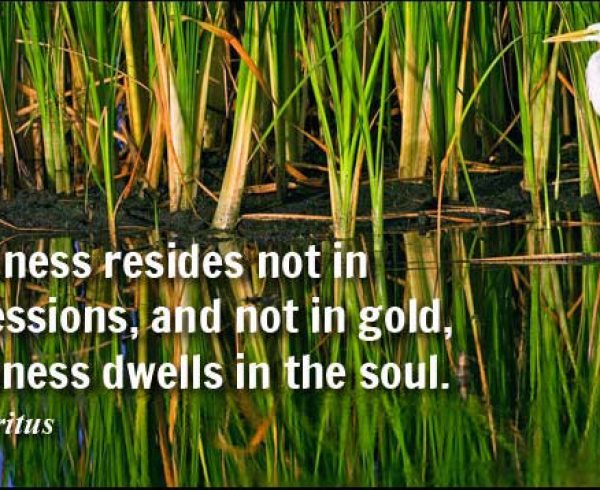3. Make it a treat.
We want everything and we want it yesterday.
The Stoics, on the other hand, used to deliberately walk around on cold days without a coat. Or skip meals to become hungry. Why?
Denying yourself something makes you appreciate the things you take for granted.
Ancient advice? Yeah, it sounds like something my grandfather would have said. But science agrees wholeheartedly.
Harvard professor and author of Happy Money, Michael Norton says a bit of self-denial is a huge happiness booster:
…if you love, every day, having the same coffee, don’t have it for a few days. Once you have it again, it’s going to be way more amazing than all of the ones that you would have had in the meantime… It’s not “give it up forever.” It’s “give it up for short periods of time, and I promise you you’re going to love it even more when you come back to it.”
Making the things you take for granted into “a treat” is something the ancients and scientists agree on. Plus it has other benefits too.
Grandpa was right: it does make you tougher to go without. It increases willpower.
What Stoics discover, though, is that willpower is like muscle power: The more they exercise their will, the stronger it gets. Indeed, by practicing Stoic self-denial techniques over a long period, Stoics can transform themselves into individuals remarkable for their courage and self-control.
Science agrees. Self-control expert and author of Willpower, Roy Baumeister, says exerting discipline increases discipline:
People have said for centuries that you can build character by making yourself do things you don’t want to do, that by exerting self-discipline you can make yourself into a stronger person. That does appear to be correct.
And what’s more responsible for success than IQ or pretty much anything else? Self-control.
Today, skip that Starbucks or that cookie. It’ll be even better tomorrow. And it’ll increase your willpower.
[cm_ad_changer campaign_id=”1″ debug=”0″]
4. It’s okay to stumble.
Does Stoicism seem hard? Don’t want to think about how awful things can be right now? Don’t want to give up your ice cream for a day?
They knew that too. What did Epictetus tell his students after he taught them these Stoic lifehacks?
He told them what to do when they screw up — because we all do.
Forgive yourself.
The Stoics understood that they would encounter setbacks in their practice of Stoicism: Thus, Epictetus, after telling his students what they must do to practice Stoicisim, went on to tell them what they should do when they failed to follow his advice. He expected, in other words, that novice Stoics would routinely backslide. Along similar lines, Marcus recommends that when our practice falls short of Stoic precepts, we should not become despondent and certainly should not give up our attempts to practice Stoicism; instead, we should return to the attack and realize that if we can do the right thing, Stoically speaking, most of the time, we are doing pretty well for ourselves.
And what does science say we should do when we lose self-control or procrastinate?
Forgive yourself and move on.
Study after study shows that self-criticism is consistently associated with less motivation and worse self-control. It is also one of the single biggest predictors of depression, which drains both “I will” power and “I want” power. In contrast, self-compassion— being supportive and kind to yourself, especially in the face of stress and failure— is associated with more motivation and better self-control.
In trying to do anything to better your life, it’s okay to stumble. It takes time. You learn.
To sum up:
You’ve only got 30,000 days of life. Seriously. Here’s what classical philosophers and modern science agree can make those days better:
“What’s the worst that could happen?”
“As if”
Make it a treat
It’s okay to stumble
Eric Barker is a writer for theweek.com and is based in California, USA.








Leave a Comment